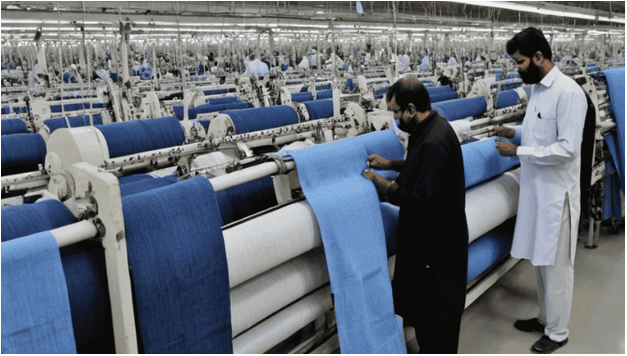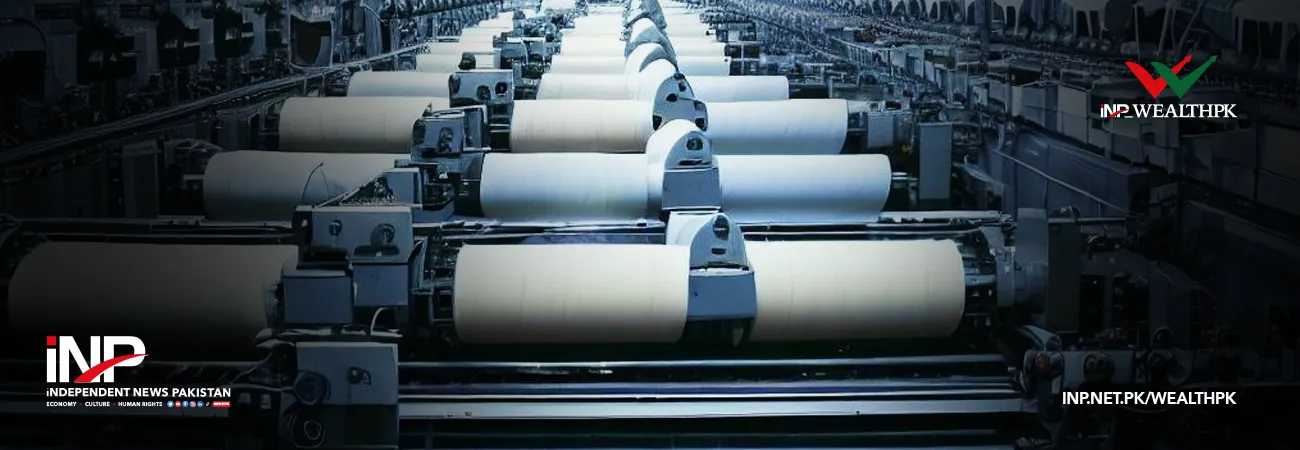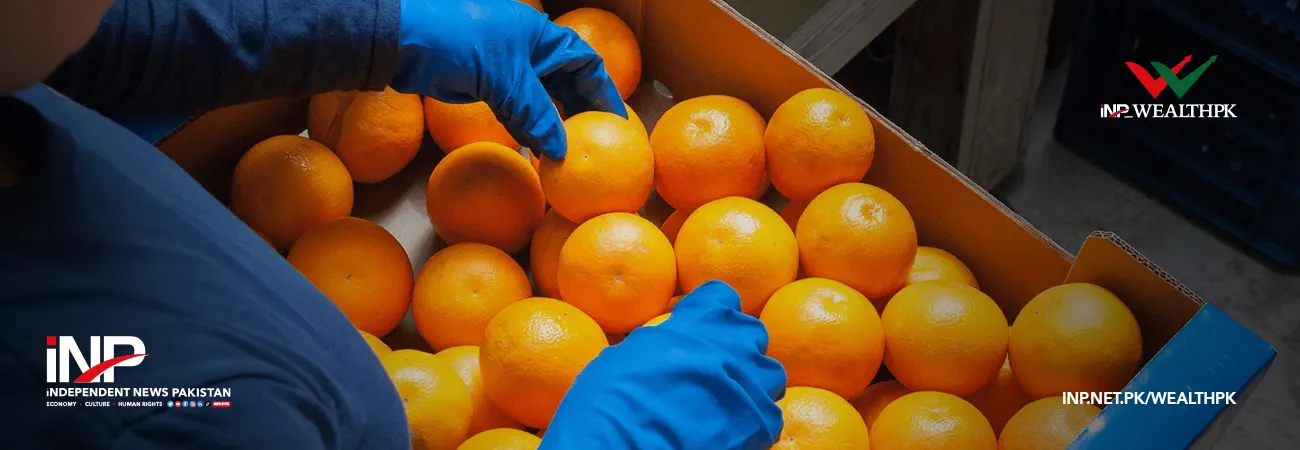INP-WealthPk
Muhammad Saleem
The sizing industry, a crucial backbone of the textile sector, is currently facing a crisis due to the high cost of energy, taxes and actions taken against different units in the name of protecting the environment. Shakeel Ahmed, a sizing factory owner, told Wealthpk that people at the helm of affairs are well aware that factory owners are struggling to keep their heads above water. However, instead of lending a helping hand, government officials– particularly from the Federal Board of Revenue (FBR) and the district administration– are hell-bent on forcing them to shut their doors.
He noted that a couple of weeks ago, the district administration started to demolish the establishments of sizing units, alleging that these units are emitting hazardous smoke. He said the situation has sent factory owners into a tailspin, causing them to halt production, which has ultimately delayed consignments for multiple textile mills. Government officials understand that the sizing sector is indeed the backbone of the textile industry, as it prepares the beams meant for weaving fabric. He emphasized that if sizing units do not provide these beams for weaving, the rest of the textile sector–including processing, stitching, embroidery, packing and others– will be left high and dry.
Aamir Sheikh, owner of a weaving and sizing unit, told Wealthpk that weaving units cannot budge an inch without the support of the sizing industry, which is a preparatory stage that coats yarn for weaving. He said the sizing sector is grappling with multiple challenges, creating significant financial issues for factory owners. He said fabric orders are dwindling due to the prevailing uncertainty in the country, and the costs of raw material and energy are fluctuating wildly. Amid such a scenario, he questioned how factory owners can chart a course. We are in a mind-boggling situation regarding how to run our businesses safely, he lamented.
He said energy prices have surged dramatically over the past few years, multiplying our operational costs. Similarly, we are facing a barrage of alleged threats from the FBR and the district administration. Textile exporters are reluctant to increase fabric rates as they are also facing intense competition from countries like India, Bangladesh and Vietnam in the international market. He said these countries are availing electricity at subsidized rates, and their labor costs are also significantly lower.
These advantages have given them a competitive edge over Pakistani exporters. We have to devise a special policy for the industry to effectively compete in international markets, he suggested. He said electricity and gas are the lifeblood of the sizing industry. However, he fears smooth gas supply this winter will be a distant dream for us. “If we opt for alternative energy sources to fuel our boilers, the district administration will crack down on us. The officials will seal our units right away. How we can survive or thrive in this scenario is food for thought,” he concluded.
Muhammad Zahid, a trader in the yarn market, said that political instability in Pakistan creates an environment where conditions are unpredictable for businesses. He noted that investors are hesitant to put their money in the yarn market, which used to be a hotspot for investment. Previously, sizing and weaving unit owners could get yarn on credit due to past investments. However, yarn traders no longer extend this credit to most of these unit owners. He warned that this uncertainty is directly affecting the cycle of the textile sector, disrupting the ongoing process of production and sales.

Credit: INP-WealthPk













